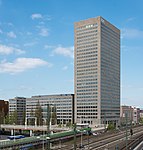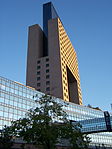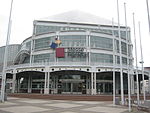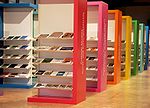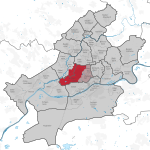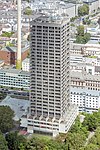Degussa Bank
Banks based in FrankfurtBanks established in 1873Corporate financeEuropean bank stubsGerman companies established in 1873 ... and 1 more
German company stubs

The Degussa Bank AG, based in Frankfurt, is a German universal bank.The balance sheet total is €6,106 million (2018). The Degussa Bank has more than 250 branches in Germany, mainly in industrial, business and technology parks as well as at corporate locations.
Excerpt from the Wikipedia article Degussa Bank (License: CC BY-SA 3.0, Authors, Images).Degussa Bank
Theodor-Heuss-Allee, Frankfurt Bockenheim (Innenstadt 2)
Geographical coordinates (GPS) Address Nearby Places Show on map
Geographical coordinates (GPS)
| Latitude | Longitude |
|---|---|
| N 50.1146 ° | E 8.640578 ° |
Address
IBC
Theodor-Heuss-Allee 74
60486 Frankfurt, Bockenheim (Innenstadt 2)
Hesse, Germany
Open on Google Maps

